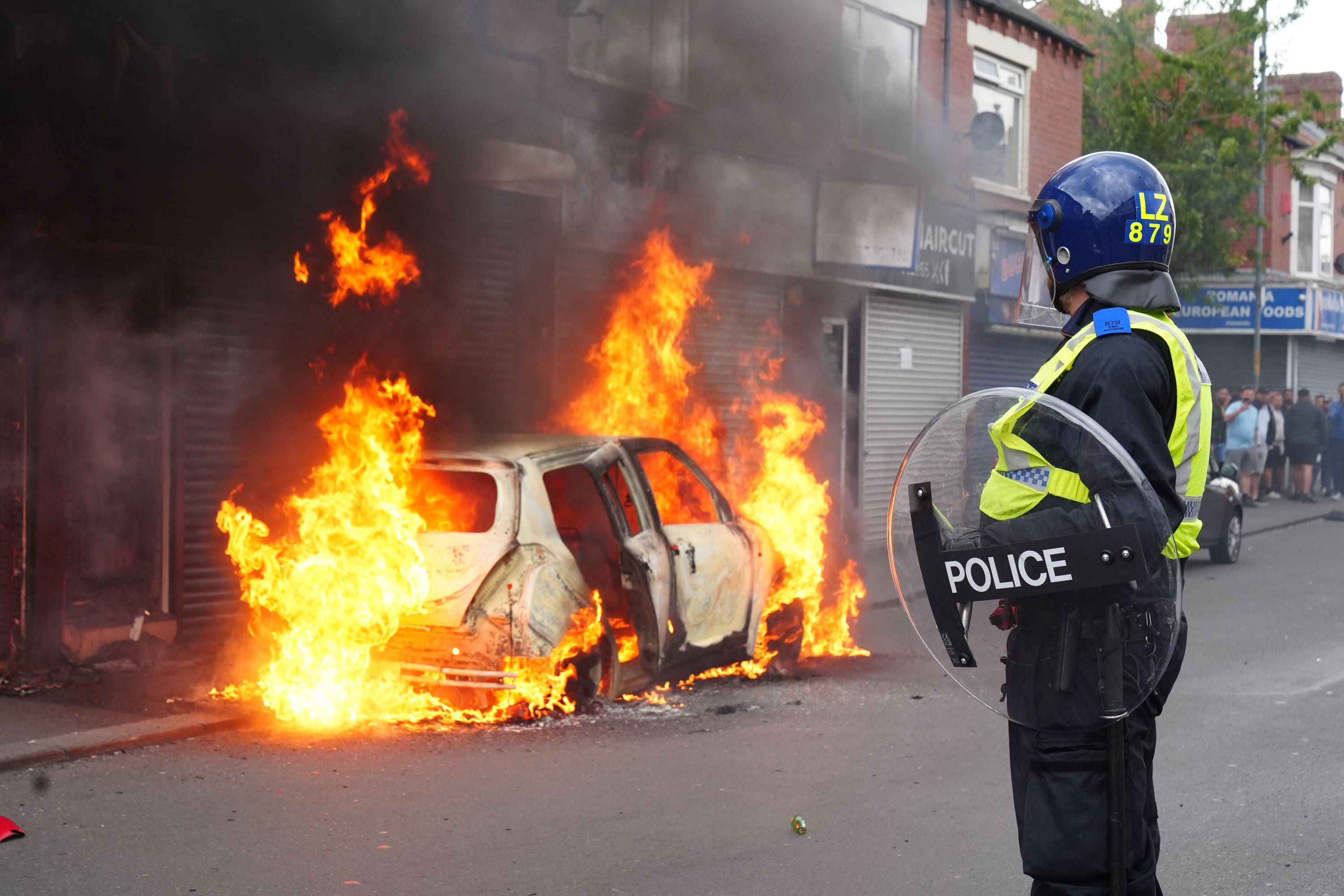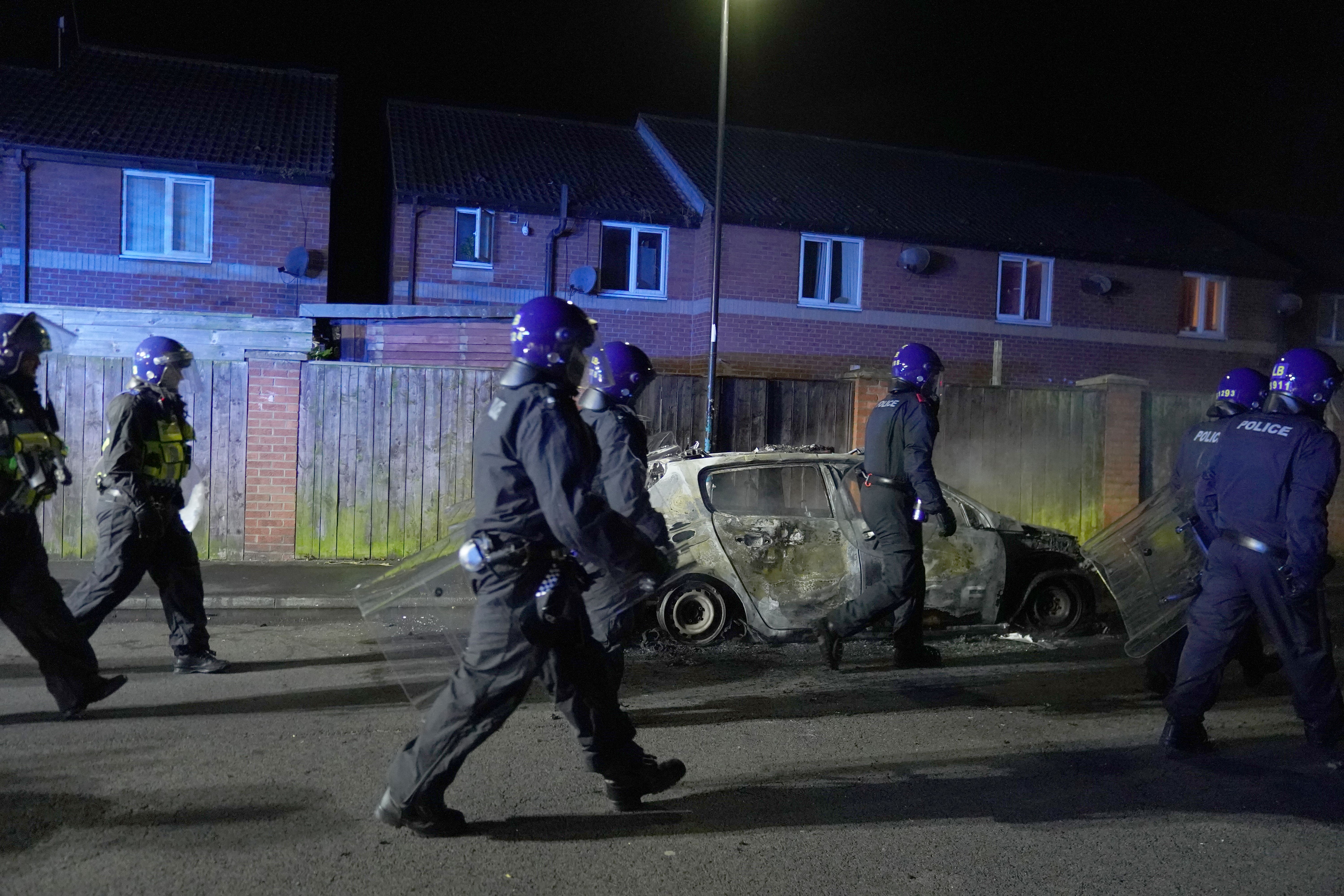
MPs have declared the police response to last summer's riots "entirely appropriate", dismissing accusations of disproportionate policing.
A new report from the Home Affairs Committee, released Monday, investigated the police handling of the widespread disorder following the tragic murder of three girls at a Taylor Swift-themed dance class in Southport on July 29 of last year.
The committee found no evidence to support claims of "two-tier policing", where certain groups are policed more rigorously than others.
The report rejected such accusations as "disgraceful", concluding that the police response to the violence and criminality was justified.
MPs said: “Those participating in disorder were not policed more strongly because of their supposed political views but because they were throwing missiles, assaulting police officers and committing arson.
“It was disgraceful to see the police officers who bore the brunt of this violence being undermined by baseless claims of ‘two-tier policing’.”

During the riots, mosques, community centres and libraries were attacked and hotels housing asylum seekers were also targeted.
Committee chairwoman Dame Karen Bradley added: “Organised disorder is rightly met with a robust response; any implied equivalence with planned non-violent protests is simply wrong.”
By January 22 this year, 1,804 arrests had been made and there were 1,072 charges from the disorder, with the majority for serious public order offences, the report said.
In total, 246 events of protests, counter-protests and incidents of disorder took place, including 88 seen as “significant” with many resulting in disorder, it added.
In the worst violence seen since the 2011 riots, MPs urged the Government to release funding to forces to cover costs from the disorder, which was estimated to total more than £28 million by the National Police Chiefs’ Council.
They also called for the Government to focus on a strategy for retaining police officers, alongside recruitment, after staff during the riots worked for long hours with many suffering injury and trauma.
Some 44,438 public order police officer shifts were worked to cover the national response to the disorder between August 1 and 18, while 302 officers were injured including up to 69 who were taken to hospital.
The report said: “Police forces did their best to ameliorate the impact on officers but it is clear that the disorder has had a detrimental effect at a time when many officers were already struggling with heavy workloads, fatigue and stress.”
MPs also found shortfalls in national policing structures that hindered the response to the disorder, and meant forces were not always able to access support they needed.
The parliamentary committee agreed with findings from a watchdog that police forces should have better anticipated the risk of disorder in general, and that it should not have been taken for granted that planned protests following the Southport disorder would remain peaceful.
His Majesty’s Inspectorate of Constabulary and Fire and Rescue Services (HMICFRS) had said that a number of events in 2023 and 2024 were indicators of potential future disorder, but this had not been reflected in police intelligence assessments.
It also found there were gaps in intelligence linked to social media and the dark web.
MPs also recommended a boosted ability for police to monitor and respond to social media at a national level.
It was also highlighted that the criminal justice system has failed to keep pace with the social media age, which created an information vacuum that “allowed disinformation to flourish” in the wake of the Southport murders.
The report recognised the belief that speculation and misinformation that the suspect was an asylum seeker was a driver of disorder.
MPs said the Crown Prosecution Service and Merseyside Police were ultimately limited on what they could publish about the then unnamed suspect, Axel Rudakubana, by the Contempt of Court Act 1981, which prevents the publication of information that could prejudice criminal proceedings.

They welcomed a review into the law by the Law Commission, which published a consultation paper last month to consider “whether there should be contempt of court liability for those who risk prejudicing a criminal trial by releasing information in the interests of public safety or national security”.
Dame Karen added: “It is a grim reality that bad actors sought to exploit the unspeakable tragedy that unfolded in Southport.
“The criminal justice system will need to ensure its approach to communication is fit for the social media age.
“Lessons must be learned from how the whole criminal justice system worked together.
“It will need to ensure that police forces can improve how they deal with regular policing work as well as supporting them to develop capacity to respond to crises.
“The Government’s plans for police reform will be especially important for making sure national policing structures support forces effectively in emergencies.”
Responding to the report, Emily Spurrell, chairwoman of the Association of Police and Crime Commissioners and PCC for Merseyside Police said the ensuring capability and improved information sharing at a national level “must be a priority for all involved in policing reform” after the findings over the nationally coordinated policing response.
A Home Office spokesperson said: “It is always important that we always learn lessons, and we are working closely with policing to improve national decision making, and to ensure that officers get the support they need to keep our streets safe.
“We also agree social media has put well-established principles around how we communicate after attacks like this under strain, and we must be able to tackle misinformation head on. That is why we have asked the Law Commission to carry out a review into the rules around Contempt of Court as soon as possible.”







